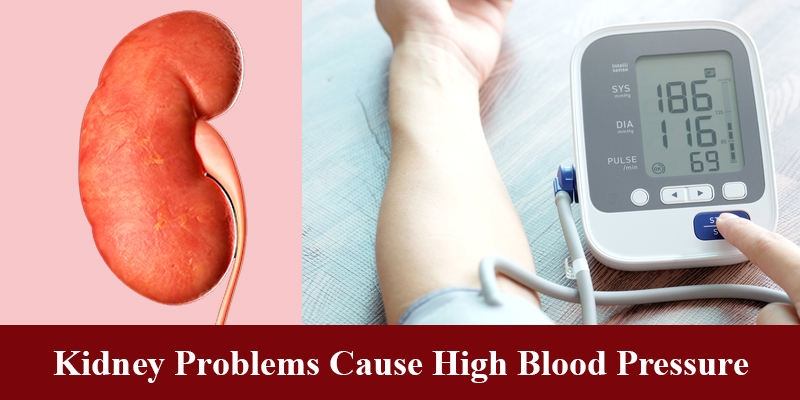
Kidney Problems Can Cause High Blood Pressure. Blood pressure is referred as to as the force of blood pushing itself against the walls of the bloodstream. High blood pressure results in higher pressure on the blood vessels as it moves through the body.
Kidney disease on the other hand refers to the incapacity of the kidneys in sifting the waste and excess fluid from the blood. The kidneys are the blood filters of the body that excretes waste in the form of urine. All the waste and hazardous substances we have in our body because of any reason, for instance from the food we consume, muscle activities, unused energy, and the body’s metabolism process stay in the blood only until removed by the kidneys.
The kidneys and circulatory system depend on each other for their function. The kidneys filter waste and use a lot of blood vessels to do so. When the blood pressure rises, the nephrons and the glomeruli within the kidneys do not receive the oxygen and other substances needed for a smooth blood filtration process. High blood pressure narrows or weakens the blood vessels that reach the kidneys and result in reduced blood flow to the kidneys.
This is why you may know doctors affirming high blood pressure to be a leading cause of failing kidney function. When this cycle continues, the kidneys may not filter the excess fluid in the blood. This fluid then starts to seep into the cells and tissues thereby raising blood pressure even more. From here this never-ending cycle continues that end with end-stage renal disease.
Damaged kidneys do not filter blood well: The kidneys have millions of nephrons that help in blood filtration. Each nephron receives its supply of blood through thin hair-like capillaries. When the blood vessels get damaged or narrowed, the nephrons do not receive the needed amount of oxygen and water. The kidneys lose their ability to function well at this time and regulate the fluid, acid level, and salts in the body. Damaged kidneys fail to regulate blood pressure: Healthy kidneys secrete a hormone called aldosterone that regulates the body’s blood pressure rate. Kidney disease results in a low production of these hormones and contributes to a never-ending cycle of uncontrolled blood pressure and kidney damage. As more arteries block, the kidneys eventually fail.
A person may have high blood pressure, if:
In addition to hypertension, other factors that likely increase the risk of kidney disease may include:
High blood pressure or hypertension is both causes as well as a sign of kidney disease.
Hardly until the last stage, people get to know about their kidney disease with the help of signs. The signs of kidney disease may not appear until end-stage renal disease while in a rare case, you may notice fluid retention causing problems. Fluid retention causes edema in the later stages as the kidneys may not get rid of extra fluid and salt.
At the later stages, you may notice:
Blood pressure is measured in systolic pressure and diastolic pressure. Systolic pressure represents the pressure as the heart beats while diastolic pressure is measured when the blood vessels relax between the heartbeats. Normal blood pressure is considered 120/80 by healthcare. If your blood pressure is continuously higher than 130/80, it indicates you have hypertension. Diagnosing kidney disease To examine your kidney function, your healthcare will measure your kidney function with the help of the following tests:
The best way to prevent kidney disease from high blood pressure is to take preventive steps along with medications. These steps may include:
Blood pressure or hypertension can make your kidney disease severe and if you have high blood pressure, your healthcare team may suggest medications to control blood pressure. Also, follow a healthy diet to prevent blood pressure from rising. Conditions like blood pressure can be easily controlled with the help of a diet and preventive measures if you have not started with the medications yet. If your kidney function is already low, you can take Ayurvedic treatment to help lower the risk of high blood pressure and end-stage renal disease also.

Certificate no- AH-2023-0186
JAN 05,2023-JAN 04,2026
"Ayurveda is not just a system of medicine; it's a way of life. Connect with us to embrace a lifestyle that nurtures your body, mind, and soul."
Book Consultation Now